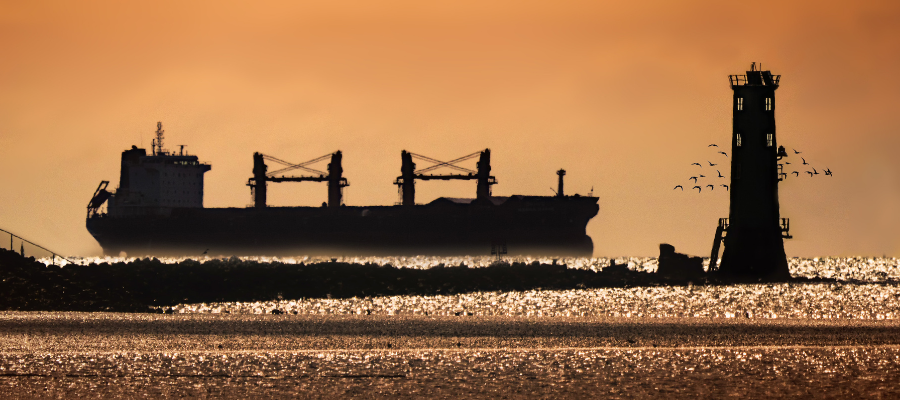🕒 Article read time: 2 minutes
A second ‘Age of Sail’? How wind-powered cargo ships could help combat climate change

A pioneering project from scientists at the University of Southampton could usher in a new ‘Age of Sail’, where large cargo-carrying vessels once again cross our oceans powered solely by the wind.
POTENTIAL TO SLASH OCEAN FREIGHT EMISSIONS
The scientists are aiming to retrofit large shipping vessels with ultramodern wing-sails, which, if successful, could help cut emissions from ocean freight by a significant margin.
The University of Southampton academics have received funding from Innovate UK to investigate the potential of the technology as part of efforts to decarbonise the UK’s maritime sector.
UTILISING SOPHISTICATED SOFTWARE
The research team intends to create new software tools which accurately predict how modern vessels perform on the ocean when fitted with the FastRig wing-sails, developed by UK company Smart Green Shipping.
SHIPPING MUST DECARBONISE AT PACE, SCIENTIST WARNS
Global shipping needs to decarbonise quickly, according to Dr Joseph Banks, lead scientist at Southampton’s Marine and Maritime Institute.
“Ships powered by wind are obviously nothing new – but almost every large vessel operating today is powered by fossil fuels, leaving a lasting mark on the environment,” he said, “While new wind-assist technologies are being developed, many are not ready for market and their predicted fuel savings have not been independently verified at sea, which is why UK-funded research projects like this are so important.”
PROJECT BACKED BY GOVERNMENT GRANTS
The grants for the Winds of Change project, the collaboration between Southampton and Smart Green Shipping, was provided by the Department for Transport and Innovate UK, which is working to transform the UK into a world leader for generating clean maritime equipment.
The scientists will test the impact of their retractable 20-metre-high FastRig wing-sail by retrofitting a 105-metre British vessel – the Pacific Grebe.
RETROFITTING HELPS CUT EMISSIONS QUICKLY
Dr Banks said: “This is an innovative project because the technology can be retrofitted to pre-existing vessels to quickly reduce emissions from the existing ships and help create quieter, emission-free ships in the future that do no harm to ocean environments and improve air quality in ports, towns and cities.
“Our team of researchers will investigate the complex interactions between the wing-sails and the ship hydrodynamics, enabling accurate predictions of vessel performance which will be compared to the demonstration vessel Pacific Grebe as part of the project.”
DRIVING FURTHER INVESTMENT IN MARINE TECH
The team at Southampton’s Marine and Maritime Institute hopes its new tool, which predicts the fuel savings delivered by the wing-sails, will drive further investment in the UK’s marine technology sector and inspire the next generation entering the maritime engineering field.
Smart Green Shipping CEO Diane Gilpin said: “I’m thrilled that the UK is demonstrating ongoing faith in our FastRig technology, which holds the key to rapidly reducing emissions from shipping. Climate science is clear that shipping must rapidly reduce emissions in the short term. Wind power harnessed using sophisticated digital software and well-engineered equipment is at present the fastest way for the sector to reduce fuel consumption and related emissions.”
“Ocean shipping accounts for around 95% of UK imports and exports by volume,” said Ellis Shelton, Policy Advisor, Logistics UK, “It is also widely recognised as one of the more difficult modes to decarbonise. We therefore applaud this initiative from the University of Southampton, which demonstrates that sometimes you must look back to go forwards. By harnessing wind power and coupling it with sophisticated digital software, this team of university scientists has developed a solution which promises to combine the best of the old and the new.”
*www.logistics.org.uk/water
Published On: 09/03/2023 16:00:26

Comments Section
If you are a Logistics UK member login to add comments.